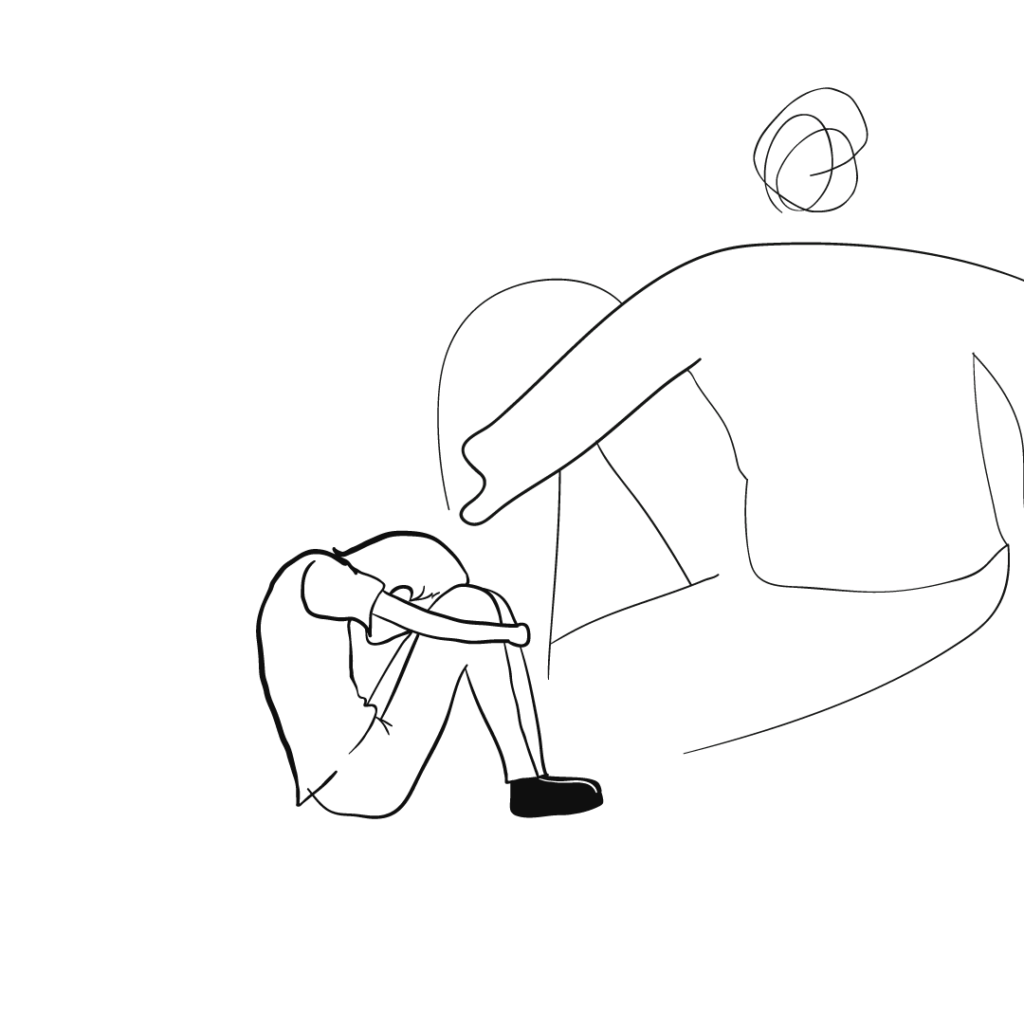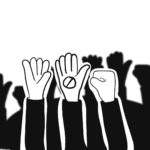MENTAL HEALTH STIGMA
If we’re culturally ready to accept that we all face life challenged, which can potentially negatively impact our physical, mental and social health and ask for the right help before the situation worsens, we can get empowered to ask for the right counselling at mental health professionals who offer us the right tools to cope with the situation. It takes courage to accept that we need help, because it’s empowering to face a problem that worries us, whether this be a problem with our behavior, thoughts or feelings.
Illustration: Argjira Kukaj

Regardless of evident facts that the number of people with mental health issues is constantly increasing, people still hesitate to ask for professional help because of the stigma towards psychotherapy or the psychologist’s role.
Even though most people have it easier to ask for help when they feel physically ill or have had an accident resulting in physical trauma, most suffer in silence when it comes to mental health issues.
Even though Kosovo lacks correct statistics, health professionals say that the number of people who face mental health issues is increasing.
“Problems with mental disorders in Kosovo, according to some of the current statistics, are ranked at around 35 percent of general diseases”, it’s noted in an article published in “Radio Liberty” in the year 2016, titled “The number of people who ask for help for their mental health increases”.
Mental health includes our emotional, psychological and social wellbeing.
In a way it impacts what we think, feel and act. It also helps in defining how we cope with stress, interact with others and make choices. So mental health is important in every life phase, from childhood and adolescence to adulthood. There are a lot of factors that have an impact on worsening mental health. There’s biological factors, such as genes or brain chemistry, life experiences, such as trauma or abuse and family history with mental health issues.
Even though most of us during our life face challenges that cause anxiety, depression or self-doubt, which negatively impact in some aspect of our lives, such as work or our relationships, we still hesitate to address it. It still seems that a belief exists that a person is “weak” if they accept that they’ve been in that state, or asks for help when they feel overwhelmed or insecure about what life path to take or how to solve a problem. A lot of individuals ask for answers from family and friends, but when the circle isn’t capable of ensuring the necessary help or guidance, the person feels lonely, isolated and confused. If we’re culturally ready to accept that we all face life challenged, which can potentially negatively impact our physical, mental and social health and ask for the right help before the situation worsens, we can get empowered to ask for the right counselling at mental health professionals who offer us the right tools to cope with the situation. It takes courage to accept that we need help, because it’s empowering to face a problem that worries us, whether this be a problem with our behavior, thoughts or feelings.
However, even if you personally take the courage to ask for help, you often find yourself being prejudiced from the people around you. Such a thing happened to Fjolla, who three years ago when she was 16 had decided to ask for a psychologist’s help. But the way she was judged had made her feel bad.
“When I was 16 years old I decided to visit a psychologist, while I was waiting with my mother a woman asked me the reason why I was there and when she understood that I was there for counselling reasons she was surprised and told my mother that I was too young to visit a psychologist, said Fjolla, for whom this experience motivated her to study psychology.
All this leaves us to understand how much we should work on raising education and awareness as far as the importance of mental health and the psychologist’s role for fighting the stigma around mental health. The same as every aspect of individual wellbeing should be treated, we should also approach our own mental wellbeing the same way. The role of the psychologist is also important here, where depending on our worry, we can address them.
Psychologists are distinct based on their field of study, which are separated into: health, social, developmental, neuropsychological, clinical, research. Some work directly with clients and some don’t. In the case of addressing mental health issues, we can refer at our clinical psychologist or counselor, who offer a safe space for a person to freely express their feelings and receive the adequate help.
Counselling psychologists work with individual clients of all ages, such as children with behavioral issues; adolescents with difficulties in school, career orienting, substance abuse problems; depression, anxiety, family problems and many more issues.
That’s why it’s very important that we as a society create a safe space where each one feels free and comfortable to ask for help regarding their worries without feeling stigmatized.
There should be an investment in awareness raising programs around the importance of mental health, lowering the stigma and to offer easy access to the psychologists by offering mental health professionals in schools, communities, mental health and family health centers and other institutions. Mental health is crucial.
About the author: Jonë Maliqi is an 18 year old who attends studies in University of Prishtina.
Resource Center –ATRC.


